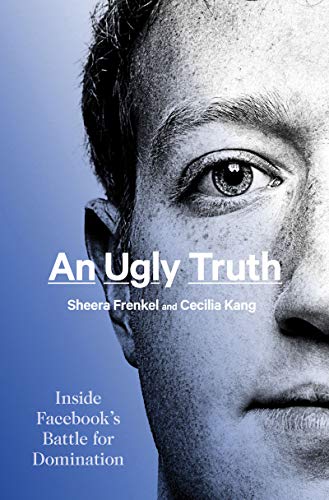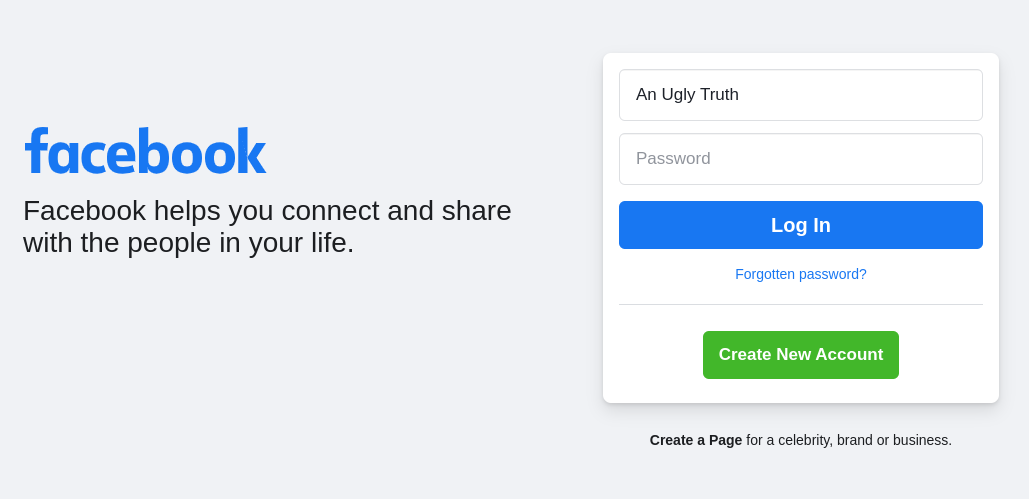Facebook is such a powerful global enterprise that its founder and CEO Mark Zuckerberg and other leaders haven’t always understood its might. The social media service has been exploited to rig elections, to develop terrorist and hate communities, and spread fake news, to name a few activities that have had more profound effect on people than any other means of communication or media. Why Facebook leaders seem to be so slow to understand the consequences, and why does the company behave the way it does? The book An Ugly Truth brings us the inside story of Facebook, and no, it is not always pretty.
Sheera Frenkel, a cybersecurity journalist and Cecilia Kang, a technology and regulatory policy writer have managed to get a significant amount of information from managers and employees of Facebook. They have been able to create exciting histories of key events inside the company. Both authors work for the New York Times, so they and their colleagues have been able to reach to Facebook’s key people for years.

An Ugly Truth – Inside Facebook’s Battle for Domination is a fascinating read. The authors have established consistent narratives of events that have had an impact on the company, on its leaders, on the people who use the service, and on politicians who are concerned about Facebook’s ever growing power. 400 people were interviewed for the book. Many Facebook employees shared information anonymously. Mark Zuckerberg and Sheryl Sandberg declined to be interviewed, but nonetheless, the book paints a vivid picture of the way the organization works. Although the history of Facebook from its college beginnings is briefly introduced, the authors have focused on a five year period from 2016 to 2020.
What can we learn from the book?
My takeaway from the book were answers to questions that I imagined I already knew, but as I found out, not fully understood.
- What is Facebook?
- Why is it like it is?
- How does the organization operate?
What
Facebook is a social network where people can share what they want to share to other people. That was the original mission. Naturally, the product has developed to new directions, and for many years the product has been a popular destination for groups where hate speech, conspiracy theories, and violent missions are being developed. Not forgetting peaceful neighborhood groups, and how-to-knit communities. From the business perspective Facebook is a giant ad engine that can accurately select attractive ads for each individual user. It is achieved by exploiting data users have entered to the service themselves and by tracking user actions on Facebook and all over the internet.
Why
Facebook is what it is because its founder Mark Zuckerberg has created the product to attract as many people as possible to share as much personal (new features encourage people to share any information) information as possible.
The book paints a picture of Mark Zuckerberg as a brilliant programmer and tech expert who is not a manager or a visionary leader. He has grown with the job and its responsibilities. Sheryl Sandberg was the business leader who created the money making ad machine, but now that she has left the company, Zuckerberg is likely to get involved in business strategy as well (the book was published before Sandberg announced her departure).
Zuckerberg has been accused of many things, but in principle he has been implementing free market capitalism as allowed in the US. Growth and revenue are priorities above everything else. Fairness and respect for users or employees are secondary items. The book describes multiple events where Zuckerberg told that growth (number of users, shared posts, ad revenue) drives the organization, everything else is secondary.
The question of leadership is simple: Zuckerberg is the boss. Although it is obvious that he can’t make all decisions in 77,000 employee organization (1Q2022), he tends to remind managers who is the one that makes the last call.
How
From the early days of Facebook, Zuckerberg has made the decisions. After a couple of years of building the product and showing great potential, investors convinced Zuckerberg that he should hire someone to take care of business and sales, and all the other things that he wasn’t interested in. He managed to recruit Sheryl Sandberg from Google in 2008. The business model and the money making ad engine were developed under her command. In the early days, their co-operation wasn’t smooth. Zuckerberg didn’t hesitate to step on Sandberg’s toes or bypass her completely. He had the power, after all, and he knew what he wanted: world domination. It was what he shouted at an internal event to the staff.
This might explain why Facebook (or Zuckerberg) so stubbornly refuses to follow, for instance, EU laws. Transfer of user data from Europe to the US, tracking users, distributing harmful and fake information, and other issues are make serious harm across the world. One of the stories in the book explains why Zuckerberg insisted not setting any restrictions on Donald Trump’s dangerous messaging during elections and his presidency. Trump was a generous advertiser on Facebook and Zuckerberg claimed that free speech must be respected. Only when the mob supported by Trump attacked the Capitol Hill in Washington, Facebook changed its course and restricted Trump’s access to the service.
The way Zuckerberg seems to view the world from inside Facebook is that they build the best tools for the world to connect and share information without taking responsibility for the damage achieved with the tools.
There are many fascinating details in the book: here are a few highlights
Facebook employees’ activities are tracked in great detail. The book introduces a remarkable job title: the Rat Catcher. The job description involves finding persons who have leaked internal information outside the company. The vital tool in the job is a keylogger tracker application that is installed on computers that are handed over to employees. Facebook staff is under surveillance.
An external consultant who was working for Facebook in New York discovered it the hard way. His friend was a journalist at Gizmodo who occasionally asked for tips for news stories. One day, the consultant sent a memo written by Zuckerberg to his journalist friend. He thought he was cautious – didn’t use any Facebook apps or services for communication, but Google Gmail Chat. He rightly assumed company was monitoring all Facebook apps, but still, he was caught. The Rat Catcher contacted him, and his game was over. She knew exactly, word by word, what he had communicated in Gmail chat to his journalist friend. It meant every keystroke and mouse movement that was performed on a company computer was recorded.
Facebook doesn’t respect the privacy of employees, or privacy of users, but what about top management? After CEO Zuckerberg had bought a big house for his family in Palo Alto, Silicon Valley, he bought the neighbor houses as well to ensure they had privacy.
After the book was published in 2021, Zuckerberg announced that the company name is changed to Meta to reflect the strategic direction for establishing a virtual world, metaverse, for users to meet and communicate. Another significant change is that the business leader Sheryl Sandberg is leaving Facebook in 3q2022, which is may mean that Zuckerberg takes a bigger role in business strategy as well.
I highly recommend the book An Ugly Truth to everyone in technology, social media or internet business, and for users of Facebook – perhaps the inside stories about the company open a few pairs of naive eyes.

